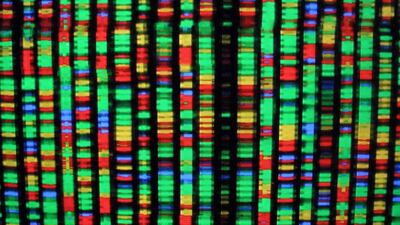Cancers and other inherited diseases like sickle-cell anaemia could be controlled in the future, thanks to an ambitious project to map the genetic make-up of every Emirati.
The Ministry of Health and Prevention is calling on citizens to come forward and have their genes sequenced, as part of the Emirati Genome Project.
The purpose is to create tailored healthcare strategies in the future, and to introduce more preventive medicine to the UAE.
Hereditary cancer accounts for approximately 10 per cent of cancer cases worldwide, and results from heritable mutations in specific genes.
For example, hereditary breast and ovarian cancers originate from specific gene mutations called BRCA1 and/or BRCA2. A simple test can show if a woman carries these genes.
The risk of inheriting a gene mutation increases sharply in the case of consanguineous marriages, which is where second cousins, or closer, marry.
Between 21 and 28 per cent of all Emirati marriages are between cousins, according to current research by the Centre for Arab Genomic Studies based in Dubai.
Studies into inherited cancer genes have been carried out in Asian and European populations, but according to a recent report published in the scientific journal Nature, very few have been completed in the Arab community.
It noted that “knowledge of targetable familial cancer genes in the Arab region remains sparse”.
The Emirati Genome Programme is set to change this, with a pilot study to create the first reference genome now completed, thanks to the contributions of 1,000 volunteers.
This reference genome will be used as a type-standard against which individual genomes will be compared in the diagnosis of genetic conditions. In the future, treatment plans could also be personalised according to a patient’s genetic make-up.
The Minister of Health and Prevention, Abdulrahman Al Owais, encouraged residents to donate samples and participate in the project, describing it as “one of the most ambitious genomics programme worldwide”.
“By using genetic science and modern technologies of sequencing-based genomic profiling to identify the DNA fingerprinting, the programme would help prevent genetic and chronic diseases such as obesity, diabetes, hypertension, cancer, and asthma, as well as develop personalised treatment for each patient according to genetic factors,” he said.
The programme is run by G42 Healthcare, an Abu Dhabi health technology company that is also responsible for conducting the world’s first pan-Arab clinical trials for the Sinopharm vaccine against Covid-19.
The chief executive of G42 Healthcare, Ashish Koshy said the success of the Genome Project depends on the voluntary participation of UAE citizens across the country.
“We urge Emiratis across all age groups to participate in the programme and contribute to a healthier future for generations to come.
“We are pleased to have received an overwhelming response with its launch in Abu Dhabi and looking forward to reach more Emiratis across the UAE,” he said.
Emirati volunteers can give samples at collection points in Al Maa’red Hall at the Abu Dhabi National Exhibition Centre and the Biogenix Lab in Masdar City.


